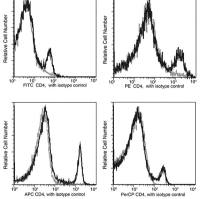Cell Trafficking: Malaria Blood-Stage Parasite-Specific CD4+T Cells After Adoptive Transfer into Mice
互联网
互联网
相关产品推荐

Hemagglutinin/HA重组蛋白|Recombinant H1N1 (A/California/04/2009) HA-specific B cell probe (His Tag)
¥2570

Recombinant-Bacillus-subtilis-Oligopeptide-transport-system-permease-protein-oppCoppCOligopeptide transport system permease protein oppC Alternative name(s): Stage 0 sporulation protein KC
¥11494

Recombinant-Mouse-Selection-and-upkeep-of-intraepithelial-T-cells-protein-2Skint2Selection and upkeep of intraepithelial T-cells protein 2; Skint-2
¥12152

CD4 Antibody (PE), Mouse MAb | CD4 鼠单抗 (PE)
¥1100

///蛋白/P-Mice-Ins-betundefined NaTx5.4蛋白/Recombinant Tityus bahiensis Toxin Tb2-II重组蛋白
¥69
相关问答

